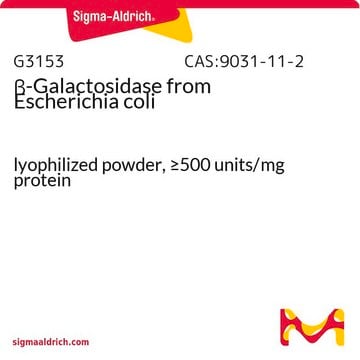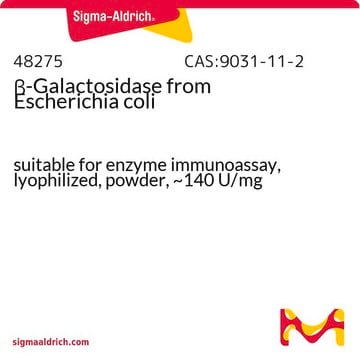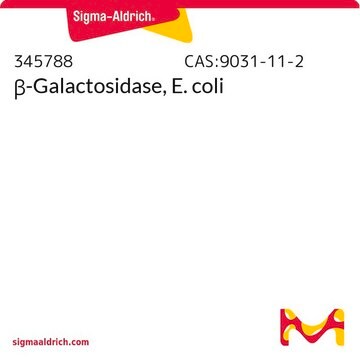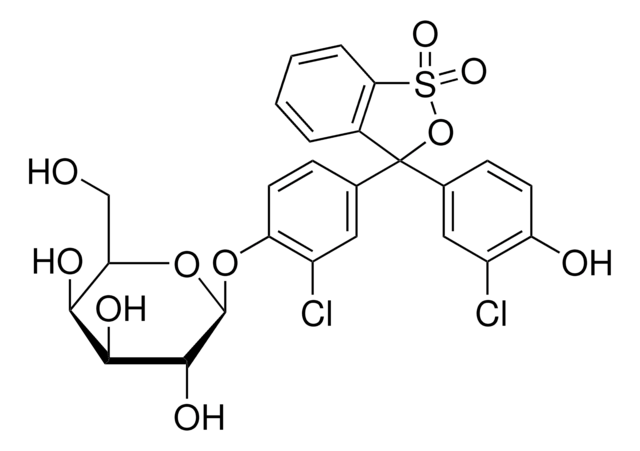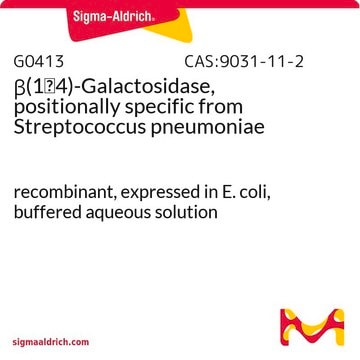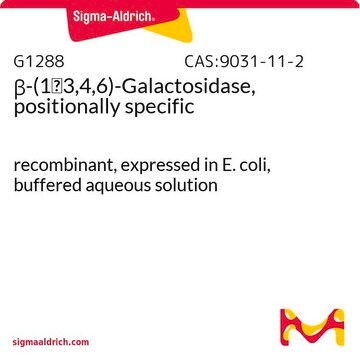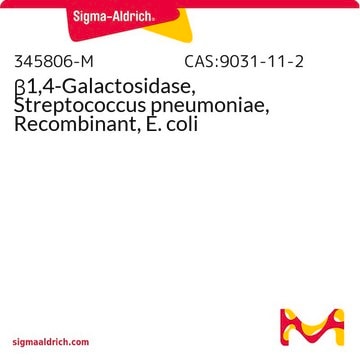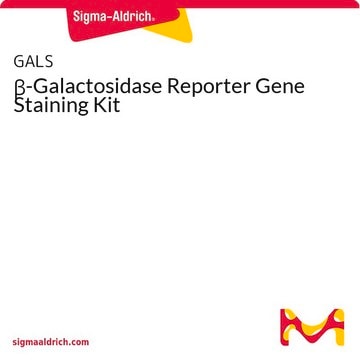G6008
β-Galactosidase from Escherichia coli
Grade VI, lyophilized powder, ≥250 units/mg protein
Synonyme(s) :
β-D-Galactoside galactohydrolase, Lactase
About This Item
Produits recommandés
Source biologique
Escherichia coli
Niveau de qualité
Type
Grade VI
Forme
lyophilized powder
Activité spécifique
≥250 units/mg protein
Poids mol.
465 kDa
Ne contient pas
BSA as extender
Composition
Protein, ≥50% biuret
Conditions d'expédition
wet ice
Température de stockage
−20°C
Vous recherchez des produits similaires ? Visite Guide de comparaison des produits
Description générale
Application
Actions biochimiques/physiologiques
Propriétés physiques
Définition de l'unité
Forme physique
Inhibiteur
Substrat
Code de la classe de stockage
11 - Combustible Solids
Classe de danger pour l'eau (WGK)
WGK 3
Point d'éclair (°F)
Not applicable
Point d'éclair (°C)
Not applicable
Équipement de protection individuelle
Eyeshields, Gloves, type N95 (US)
Certificats d'analyse (COA)
Recherchez un Certificats d'analyse (COA) en saisissant le numéro de lot du produit. Les numéros de lot figurent sur l'étiquette du produit après les mots "Lot" ou "Batch".
Déjà en possession de ce produit ?
Retrouvez la documentation relative aux produits que vous avez récemment achetés dans la Bibliothèque de documents.
Les clients ont également consulté
Notre équipe de scientifiques dispose d'une expérience dans tous les secteurs de la recherche, notamment en sciences de la vie, science des matériaux, synthèse chimique, chromatographie, analyse et dans de nombreux autres domaines..
Contacter notre Service technique

